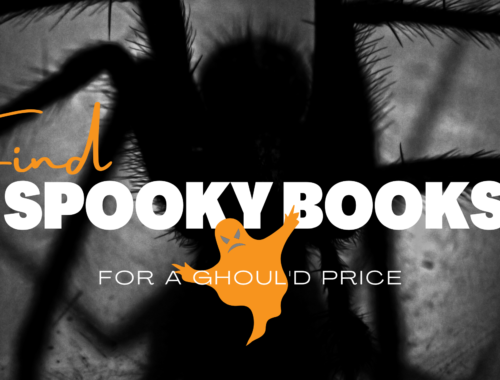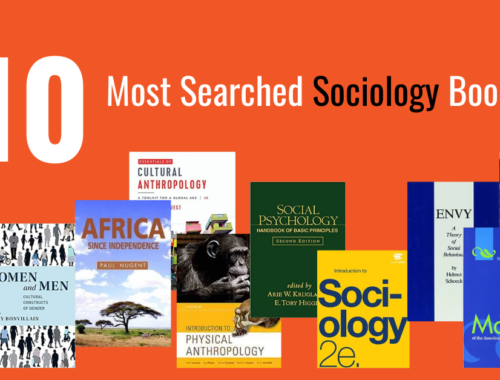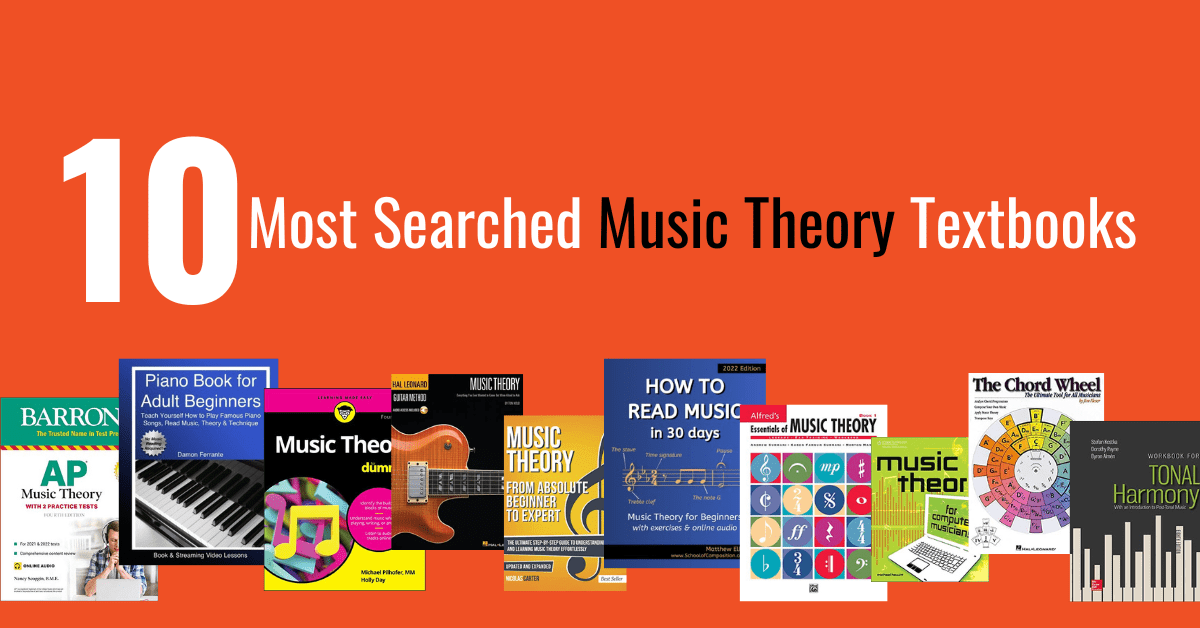
With a projected 10% job growth for music theory and composition degree holders, music education is thriving more than ever. While most people working in the industry hold a master’s degree, you’ll likely need music theory textbooks to get your associate’s and bachelor’s before it’s time for grad school.
Whether you want to compose music yourself, perform it, or both, you’ll need a good understanding of music theory. Over the next few minutes, you’ll learn all about the most popular textbooks on music theory that take you beyond your major scales.
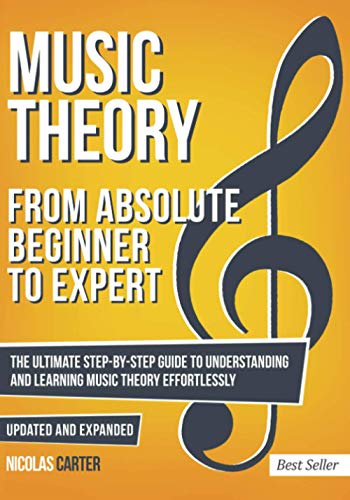 Music Theory: From Beginner to Expert – The Ultimate Step-By-Step Guide to Understanding and Learning Music Theory Effortlessly (Essential Learning Tools for Musicians)
Music Theory: From Beginner to Expert – The Ultimate Step-By-Step Guide to Understanding and Learning Music Theory Effortlessly (Essential Learning Tools for Musicians)
First up, we have Music Theory: From Beginner to Expert, by Nicolas Carter. Thanks to the author’s years of experience, this textbook takes complex music theory ideas and packages them into smaller, more understandable chunks.
Throughout this book, you’ll learn how to apply music theory to playing music on your instrument of choice. Aside from practical applications, you’ll learn all about scales, intervals, chord progressions, and the science behind sound. Finally, this textbook is meant for newbies to the world of music. If you’ve never picked up an instrument before, this book will take you through the basics up to the complexities of higher music theory.
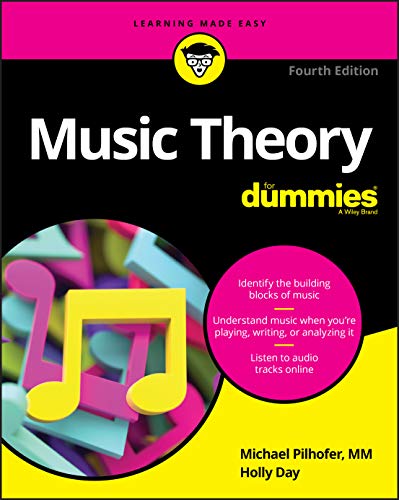 Music Theory For Dummies
Music Theory For Dummies
by Michael Pilhofer, Holly Day
Like every other book produced by this publisher, Music Theory For Dummies does a fantastic job of breaking down intimidating music theory concepts into reader-friendly bits. You’ll cover the basics of music theory, like major and minor scales, how to read sheet music, and even how to compose music.
This book is useful for performers, composers, and music enjoyers alike, thanks to the online audio tracks that supplement the text. Between the exercises, images, and text, you’ll finish this textbook with a thorough understanding of music theory and composition.
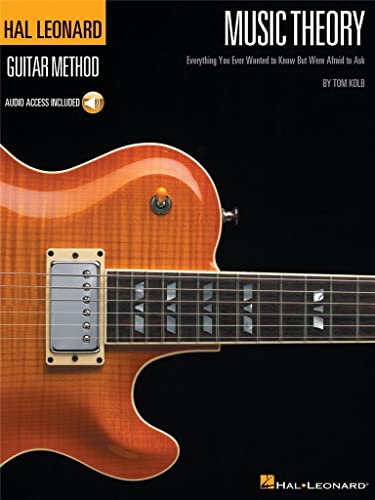 Music Theory for Guitarists: Everything You Ever Wanted to Know But Were Afraid to Ask
Music Theory for Guitarists: Everything You Ever Wanted to Know But Were Afraid to Ask
Unlike our first two textbooks, Music Theory for Guitarists is geared toward, you know, guitarists. In the right around 100 pages, you’ll learn about the technical side of guitar playing.
Thanks to supplemental recordings, you’ll have easy access to examples of chords, modes, scales, and ear training exercises. Under the guidance of seasoned guitarist Tom Kolb, you’ll find yourself shredding on the guitar in no time.
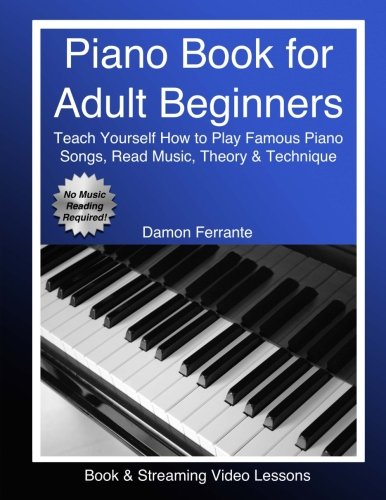 Piano Book for Adult Beginners: Teach Yourself How to Play Famous Piano Songs, Read Music, Theory & Technique
Piano Book for Adult Beginners: Teach Yourself How to Play Famous Piano Songs, Read Music, Theory & Technique
While a child or an adult may have never touched a piano before, they will have much different learning capabilities when it comes to music theory and technique. The Piano Book for Adult Beginners is the perfect way for adults to pace themselves on their new instrument.
In this book, you’ll get step-by-step lessons along with dozens of video lessons that are designed to be interactive. Thanks to the text, images, and video, you’ll soon be able to develop your own piano technique and learn popular piano songs. Featured songs include Amazing Grace by Beethoven, The Entertainer by Scott Joplin, and Silent Night.
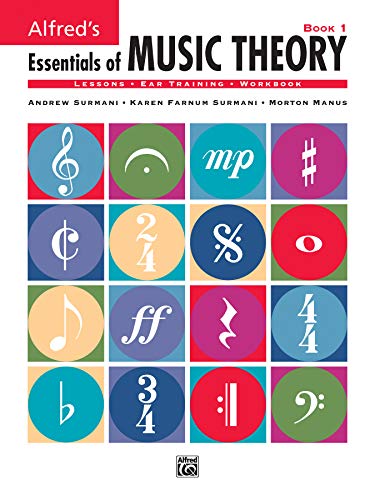 Alfred’s Essentials of Music Theory
Alfred’s Essentials of Music Theory
by Andrew Surmani, Karen Farnum Surmani, Morton Manus
Alfred’s Essentials truly does cover all the basics when it comes to music theory. While you’re reading and working through this textbook, you’ll learn how to read music, practice writing music, and develop listening and ear-training skills.
Each unit ends with a comprehensive review that ensures you’ve mastered the content at hand, whether it’s time signatures or dynamic signs. This book is a great way for beginners to lay a solid foundation in music theory through reading, listening, and writing.
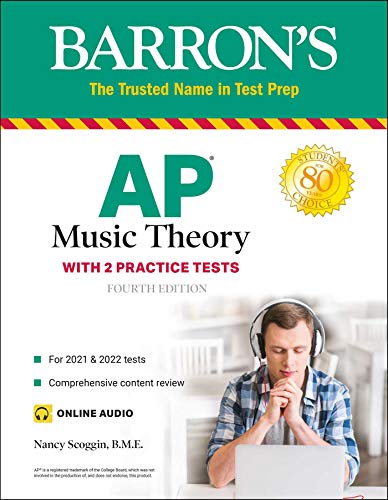 AP Music Theory: 2 Practice Tests + Comprehensive Review + Online Audio
AP Music Theory: 2 Practice Tests + Comprehensive Review + Online Audio
by Nancy Fuller Scoggin B.M.E.
AP Music Theory courses are notoriously rigorous, and nothing will prepare you for the AP exam like an equally rigorous review book. Barron’s AP Music Theory book is written and reviewed by AP experts, so you’ll be able to conquer music theory along with studying and test-taking tips and strategies.
Nothing is more helpful for learning than practice. Luckily, this book had 2 full-length practice tests along with mini-practice exercises sprinkled throughout. The online audio ensures that you’ll be prepared for the AP exam and have an in-depth understanding of music theory.
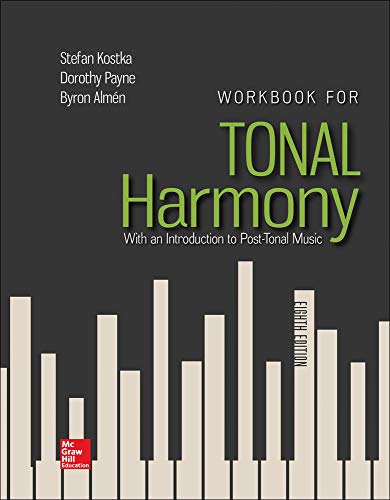 Workbook for Tonal Harmony
Workbook for Tonal Harmony
Remember how we said the practice is super important? Well, Tonal Harmony is all about practice. You’ll have a Self-Test with every chapter so you can continually reinforce the concepts you’re learning.
Positive reviews have raved about how Tonal Harmony helped them understand college-level music theory. With Self-Tests and many exercises, you’ll get all the practice you could ask for.
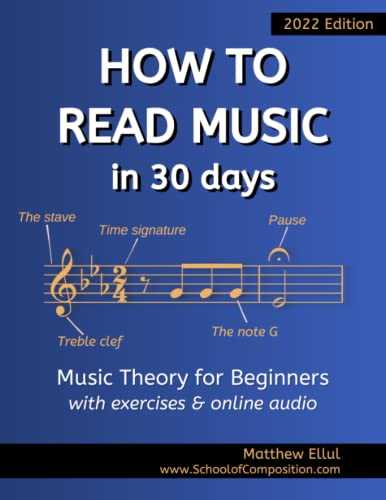 How to Read Music in 30 Days: Music Theory for Beginners – with exercises online audio
How to Read Music in 30 Days: Music Theory for Beginners – with exercises online audio
Have no experience with reading music? This textbook is perfect for you! There are more than 150 music examples, written exercises, and listening exercises to help you learn music theory, rhythm, music notation, and how to write music.
This book is an excellent guide to understanding every aspect of music, from notes to tempo to fortissimo.
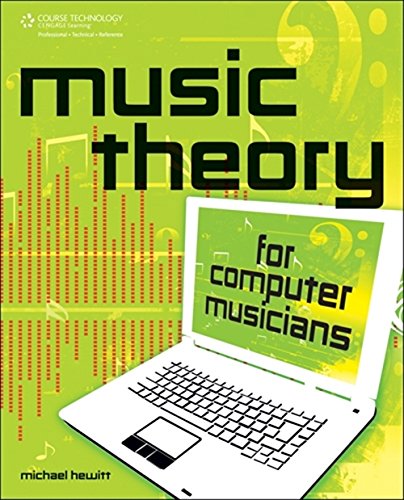 Music Theory for Computer Musicians
Music Theory for Computer Musicians
For all you DJs and electronic music producers, this is the book for you. In this textbook, you’ll learn the fundamentals of music theory and how it fits into composition and recording software.
Also, this book draws from multiple software interfaces so that you can learn about a variety of music-composing tools you’ll use in your career. Between the texts, audio, and review exercise, you’ll be able to quickly elevate your career as a computer musician.
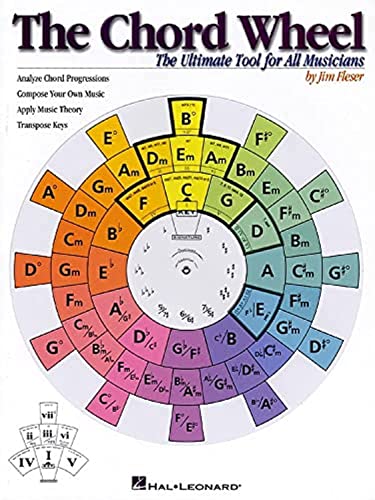 The Chord Wheel: The Ultimate Tool for All Musicians
The Chord Wheel: The Ultimate Tool for All Musicians
Chords are intimidating to even seasoned musicians. There’s a lot of music theory behind chord theory, so it’s important to get a solid foundation.
This textbook is a great way to learn about chord theory in a short amount of time. Through the author’s professional experience and educational background, you’ll soon find yourself not only understanding chords but composing your own music!
Conclusion
On this list of the 10 most searched music theory textbooks, you’ll find books on everything from electronic composition to guitar music theory to beginner-level piano music. There’s something for everyone, so it’s up to you to find the music theory textbook that best suits your goals.



